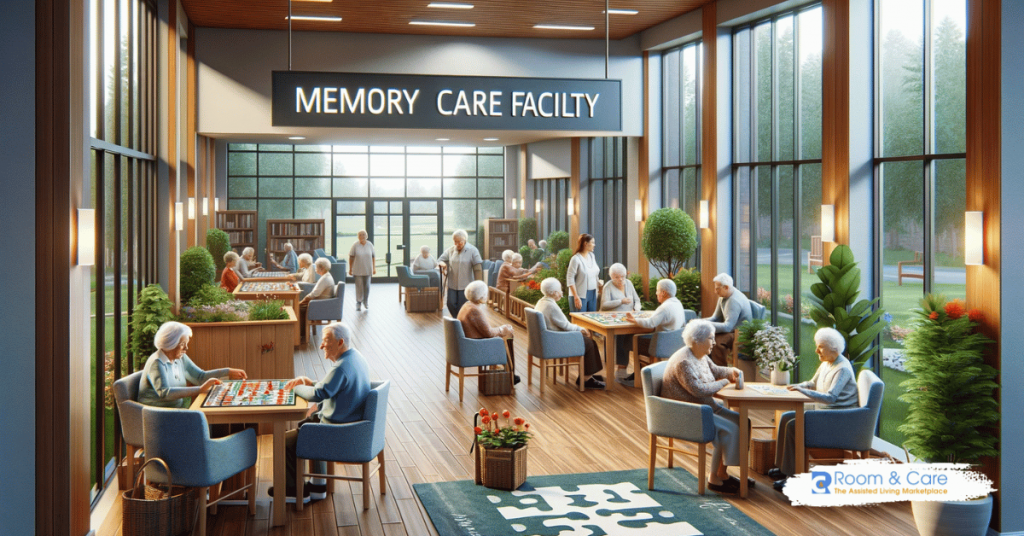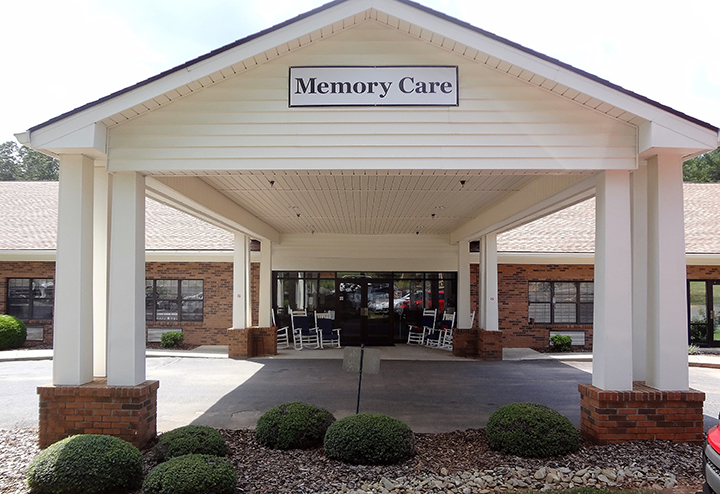Premier Charlotte Memory Care: Enhancing Lifestyle for Elders
Premier Charlotte Memory Care: Enhancing Lifestyle for Elders
Blog Article
What to Anticipate in Memory Treatment: A Comprehensive Overview to In-Home Services
Navigating the landscape of memory take care of a loved one can be a complicated and mentally billed experience. As households come to terms with the challenges of caring for somebody with memory loss, the realm of in-home services provides a lifeline of support and specialized care. Understanding what to anticipate in memory care is essential for ensuring the well-being of both the individual with memory disability and their caretakers. From customized day-to-day activities to security procedures and caretaker sources, this overview intends to shed light on the extensive range of services readily available to those embarking on the trip of at home memory care.
Daily Regimens and tasks
Taking part in organized everyday tasks and routines is a basic element of giving top quality take care of people in memory care facilities. These tasks are diligently created to accommodate the certain needs of locals with cognitive problems, such as Alzheimer's disease or mental deterioration. Daily routines play a vital function in maintaining a feeling of experience, security, and objective for people in memory treatment.

Moreover, day-to-day routines help people in memory treatment centers to feel more oriented and much less anxious. Consistency in tasks and routines can reduce confusion and anxiety, offering a feeling of security and convenience. Caretakers and team member play a critical role in assisting in these tasks, ensuring that each resident receives customized and compassionate care tailored to their one-of-a-kind choices and capabilities.
Specialized Treatment Services
Within memory care centers, specialized care solutions are necessary to attend to the distinct demands and obstacles dealt with by people with cognitive disabilities such as Alzheimer's condition or mental deterioration. These solutions are designed to offer customized support that caters to the certain needs of citizens taking care of amnesia. Specialized treatment services in memory care centers usually include personalized treatment strategies, aid with tasks of everyday living, medication administration, and behavior modifications aimed at improving lifestyle and reducing distress.
In addition, memory care facilities commonly use organized programs and tasks specifically created to stimulate cognitive feature and advertise social involvement among homeowners. These activities may consist of memory-enhancing exercises, sensory excitement therapies, and memory treatment sessions. Furthermore, specialized treatment solutions typically entail routine monitoring of residents' health and well-being by qualified staff participants who are furnished to handle the special difficulties connected with cognitive decrease.
Security Actions and Environment
Carrying out strict safety measures and producing a safe and secure setting are extremely important top priorities in memory treatment centers to make certain the health and defense of locals with cognitive problems. Safety and security in memory treatment starts with safe structure layout, including locked doors and kept track of entries to stop residents from straying outdoors unsupervised. By focusing on safety steps and preserving discover here a safe and secure atmosphere, memory care centers objective to give a protective and encouraging setup for individuals with cognitive disabilities.
Interaction and Interaction Techniques
With a focus on enhancing and promoting significant communications quality of life, efficient communication strategies play a critical role in supporting individuals in memory treatment centers. Interaction in memory treatment entails understanding the distinct needs of homeowners who may have cognitive impairments like dementia. Simple language, clear instructions, and non-verbal signs such as gestures and face expressions are essential tools for efficient interaction. Caretakers should approach residents with perseverance, respect, and empathy, creating a supportive setting where individuals feel understood and valued.
Involvement methods are likewise crucial in memory care, aiding citizens remain energetic, promoted, and connected to their environments. Tasks like music treatment, art classes, reminiscence sessions, and sensory excitement can spark memories, improve state of mind, and promote socializing. Customizing activities to each person's rate of interests and abilities is essential to cultivating interaction and a feeling of achievement. Additionally, incorporating acquainted objects, pictures, and songs from the person's past can give comfort and promote favorable memories. By prioritizing tailored interaction and engagement methods, memory care facilities can boost the total well-being and top quality of life for their residents.
Caregiver Assistance and Resources
Provided the critical function caretakers play in applying efficient communication and involvement strategies for residents in memory care facilities, providing adequate assistance and resources is important to ensure the health of both the caregivers and the individuals under their treatment. Caretakers in memory treatment setups usually deal with special challenges that can influence their physical and emotional wellness. To attend to these difficulties, different support group and resources are readily available to aid caretakers in offering the most effective possible treatment.
One necessary type of assistance is caretaker education and training programs. These programs gear up caregivers with the necessary skills and understanding to effectively take care of the symptoms and behaviors related to memory loss. In addition, support teams use caretakers the possibility to get in touch with others who are experiencing comparable challenges, giving a sense of community and understanding.

Conclusion

Involving in structured day-to-day activities and routines Check This Out is an essential component of supplying quality care for individuals in memory care centers.Within memory care centers, specialized treatment solutions are crucial to address the distinct requirements and obstacles faced by individuals with cognitive impairments such as Alzheimer's disease or dementia. Specialized care services in memory treatment facilities often consist of customized care strategies, assistance with tasks of daily living, medicine administration, and behavior therapies intended at enhancing quality of life and lessening distress.
Given the critical duty caretakers play in applying efficient interaction and involvement approaches for residents in memory treatment facilities, providing sufficient assistance and resources is vital to make certain the health of both the caregivers and the individuals under their care. Daily activities, specialized treatment solutions, safety steps, communication techniques, and caregiver assistance are crucial elements of in-home memory treatment.
Report this page